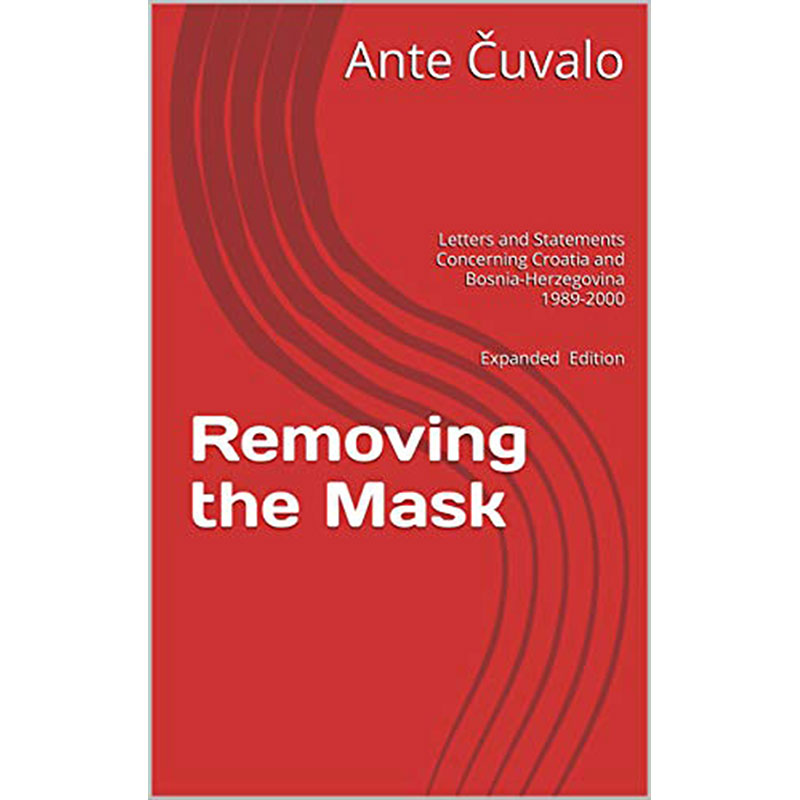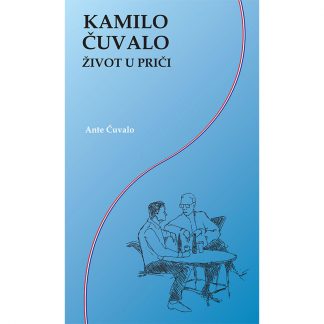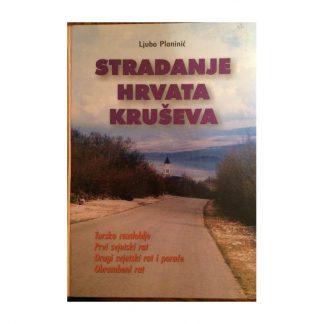Opis
This book is dedicated to the memory of my young nephew, Raveno Čuvalo, shot by the Yugoslav People’s Army in front of his apartment building in Zagreb, July 2, 1991. He was the first civilian victim of the Yugoslav People’s Army (JNA) aggression in the Croatian capital.
INTRODUCTION
The letters and statements published in this volume reflect the colossal historical events that took place in the formerly Communist-controlled parts of Europe during the last ten years. More specifically, these writings reflect the views of the author on the events that accompanied the collapse of socialist Yugoslavia, namely, the Serb rebellion-cum-aggression against their neighbors and the response of the world power holders to those tragic events. On the 9th of November 1989, the Berlin Wall collapsed and the bitter reality behind it began to crumble. The floodgates of freedom were finally opened for peoples and individuals; for Western political leaders, however, an era of uncertainty and fear of “runaway freedom” ensued. Historically, the guardians of world order were always reluctant to accept changes, especially more radical ones, and the world stewards of the 1990s followed the example of their predecessors. But, while those in the East could not keep the “gates” closed any longer, the political establishment in the West was still preoccupied with keeping the status quo. Its main concern was not human rights and freedoms or how to guide the new and much more complex Europe (and the world) forward, but to slow down, and even stop, the new political and social winds blowing in the East, and thereby to prevent the Soviet Union and Yugoslavia from breaking up. Contingency plans in the free world did not exist for the dramatic and millennial changes that were taking place in the Communist block at the end of the 1980s. Such events simply were not supposed to take place. Not only Western politicians but also “leading experts” on the Soviet Union and Eastern Europe were not able to see reality much beyond their own vested interests in the bipolar world of the time. Unfortunately, most Soviet and Yugoslav experts in academia were also coopted: they clung to political correctness to the end. Job security and professional prominence prevented most of them from seeing the reality that was emerging from under the rubble of Communism. One did not have to believe in historical determinism, however, in order to anticipate the collapse of the countries held together only by fear and a Communist monopoly on truth and power. Anyone with common sense and willingness to look at historical reality with an open mind could have concluded that with the collapse of the Communist controlled power structures, countries like the USSR and Yugoslavia were but history. The ultimate causes for their collapse, however, were much deeper than a few decades of life under Communism. From their very inception, these multinational countries were carrying the seeds of their own destruction. Contrary to popular opinion in the West, the primary cause for the Yugoslav demise, both the royalist and socialist, was not Croatian, Slovene, or Bosnian Muslim separatism, or Germany’s “rush” to recognize Slovenian and Croatian independence (December 19, 1991), but Serb hegemony, which was clearly formulated by the 1840s and kept alive ever since. A Yugoslavia made up of free individuals and several equal peoples and religious groups was never an option to the Serbs. It had to be dominated by them or replaced by a greater Serbia. The process of Yugoslav destruction, therefore, began in 1918 when the ruling Serbian elite, instead of promoting equality, rule of law, political and human rights, turned to terror against all those who did not submit to the will and interests of Serbia and its regime. All leading Serb institutions together with their political, cultural, and religious elite, used historical myths and promoted nationalist messianism to mislead the Serbian people into believing that the Serbs were a “special nation” which had played a great role in history as was its destiny to do; that the Serbs had “liberated” their neighbors who remained ungrateful for Serbian sacrifices; that all Serbs must live in Serbia; and that Serbia encompasses Vojvodina, Montenegro, most of Croatia, all of Bosnia-Herzegovina, Macedonia, and above all, Kosovo, the symbol of the Serbian universe that connects Serbia and the Serbs wherever they live to the heavenly spheres. Slobodan Milosevic, who emerged as a leading Serb politician in 1987, was not the main ideologue but simply the latest executor of the Serbian national program, one who knew how to use the existing national ideology in his own unlimited thirst for power. Very few Serbs in the country or those living in the West opposed Milosevic’s goals or his methods of achieving them. Even numerous well-educated American-born Serbs (as well as those who adopted Serbianism through marriage) who work in various higher institutions of learning in the West became active supporters of the Serbian grand design and became a part of Milosevic’s propaganda machine. If such American Serbs and some of those who adopted Serbian history and tradition were totally blind to the events in Vukovar, Dubrovnik, Sarajevo, Srebrenica, and Kosovo, what can one expect of an ordinary Serb in Serbia? Only when Milosevic failed to achieve their grand objectives did he become a political problem for “democratic forces” in Serbia and abroad. The latest attempt to create a greater Serbia began in Kosovo in 1989, and by 1999 it had made a full circle. Kosovo became the final battle of the great tragedy unleashed ten years earlier. In the end, Serbs lost the battle and the Kosovo province. Now, after spreading horror and death in the region, Serbs are looking for scapegoats and not for the real causes of the tragedy they brought upon themselves and others. Moreover, there are still strong individual, group, and institutional voices among the Serbs who claim that their recent defeats are only temporary setbacks in the on-going struggle for the unification of “all Serbian lands.” At the present time, international power wielders, with good justification, do not wish to look into the “black hole of the Balkans”; rather, they are eager to see Serbia leap over the abyss it has dug around itself. The Western politicians also foster strengthening young democracies, market economy, human rights, and civil society in other countries of the region. Their general approach in implementing these honorable goals, however, has some fundamental flaws and it is doubtful that the desired results will be achieved. First, there is no willingness on the part of American and European political leaders or their expert advisors to take a serious look at the recent past of Southeastern Europe, to find what have been the fundamental and lasting problems in the region so that the real grievances can be addressed instead of simply papered over. Second, the relativistic premise that every side caught up in the tragic events accompanying the collapse of socialist Yugoslavia is equally guilty is not only false but absurd and creates more harm than good. There is an immense difference between peace, reconciliation, and forgiveness on the one hand and equalizing the victim and the victimizer on the other. Making certain that there are no winners or losers and acting as if the entire tragedy was simply a minor glitch in the history of the region where “they kill each other any way” is a hindrance and not a help in bringing normalcy to that part of Europe. Third, there are strong indicators that in the minds of many politicians and “experts” a romantic image of Tito’s Yugoslavia is still at least a virtual reality and, according to them, the Yugoslav breakup was simply an accident or the work of a few madmen. Some of them still hope that Humpty Dumpty will be put together again in some shape and form. These forces advocate a regional approach for the future development of countries that emerged from the ruins of socialist Yugoslavia (minus Slovenia), using the same sticks and carrots in dealing with all of them and in making sure that they earn their entrance into Europe together. But the regional uravnilovka (leveling) already has and will have in the future an opposite effect, most of all among the Croatians. Finally, one may suspect that international bureaucrats are not in a rush to resolve any crisis around the world, including the Balkans. If they did bring such crises to successful resolutions in a reasonable time they would actually eliminate their own jobs and often their powerful careers on the world stage. They, therefore tend to see everything as a process and as long as that process is “moving forward” they can justify their jobs and high salaries. One should not forget that in such processes real people are not only forgotten, but ultimately they become victims of international bureaucrats and local villains. The world powers have helped, although reluctantly, to stop the killings in the Balkans, but unfortunately the international post-war cures in Croatia and Bosnia-Herzegovina will not be of much help to the new generations to reach a better tomorrow unless they can solve their own problems. I hope that future researchers, in their attempts to see history from various angles, will find this collection of letters and statements useful. These documents will give them insight into how an American Croat responded to events related to Croatia and Bosnia-Herzegovina from 1989 to 2000.
***
A number of the letters and statements were written on behalf of the Alliance of Croats of Bosnia and Herzegovina, an organization in the United States established in 1994. All of the texts were written by the author, who served as president of the Alliance, and co-signed by the secretary of the organization, Mr. Petar Radielović. Also, a few letters are a translation from the original text in Croatian. Some of the letters sent to the American print media were published, and in that case, the name of the publication and the date are printed along with the text. A number of letters received by the author are also included, so that the reader may have a better picture of the author’s correspondence regarding the events in his native land. Finally, I am thankful to numerous friends who have remained supportive of my work. Special gratitude goes to my wife Ivana for her consistent encouragement and professional help, as well as to my children, Mike and Angie, for giving a helpful hand when needed. A deep gratitude goes to Theresa Zdunić Conway for editing the text and being a dear friend.
Ante Čuvalo
BOOK REVIEW
This book consists of a collection of letters and political memoranda which Ante Čuvalo wrote over more than a decade in connection with events in Croatia and Bosnia-Herzegovina. Čuvalo is easily one of the most active Croatian-American academics, and this anthology highlights his remarkable energy and ability to apply his scholarly skills to the practical arena of policy. Beginning with a salvo in reply to an article by Serb intellectual Momčilo Selić in 1989, Čuvalo wrote letters to newspapers and magazines in response to news reports or opinion pieces which he felt presented misleading or downright biased positions. In doing so, Čuvalo crossed words with such personages a David Binder, Srdja Trifković, Bogdan Denitch, Robert Hayden, and Helen Delich Bentley. Many of his letters were published in such newspapers as The New York Times, The Chicago Tribune, The International Herald Tribune, and the Cleveland Plain Dealer. Even those of his letters to the press which were not published often elicited responses from the editors (which are also published here), and his efforts probably had at least some effect in changing how the news was covered.
In addition, Čuvalo sent other letters, also published here, to prominent public figures with the intent of providing criticisms or suggestions, including to Presidents George Bush and Bill Clinton, their Secretaries of State, Lady Margaret Thatcher, Ambassador Richard Holbrook, the Secretary-General of the United Nations, and to numerous U.S. Senators and Congressmen. Often, Čuvalo would send along an analysis of political events when writing to policymakers, as well as copies of his Historical Dictionary of Bosnia-Herzegovina, and often received replies thanking him for his think-pieces.
There are also letters with Čuvalo sent to publishers of new educational textbooks and maps, seeking to correct traditional and new errors which recent reference works, if left unchallenged, would only reinforce. Particularly interesting is an exchange between Čuvalo and the organizers of a roundtable discussion at DePaul University in 1992, with Čuvalo focusing on the background and views of one of the sponsors, Bogdan Denitch, and the questionable framework for the proposed roundtable. This elicited a heated response from the sponsors which, as much as anything, probably characterized the extreme and rather naive outlook of this apparently ephemeral group called “DiYUlog for Peace” (pp. 77-80).
There was probably no one as active in letter-writing on behalf of the Croatian cause during this period, something which must have required a significant amount of time and effort.
The themes in the letters reflect the topical issues over the span of a decade, beginning with the need to clarify to foreign observers the reasons for an implications of the impending and then actual disintegration of Yugoslavia, followed by the need to elicit action by the International Community (an specifically the United States) in dealing with the onslaught of Serb military actions in Croatia and Bosnia-Herzegovina, and ending with the need to craft and support a viable post-war solution. Future historians one day may well use such letters to gain an understanding of how the various diasporas in the United States reacted to events in the former Yugoslavia, and Čuvalo’ anthology provides what may turn out to be one of the richest samplers of such primary material. In the meantime, this book provides a very readable and personal overview of one Diaspora intellectual’s perspectives and activities during an entire decade of momentous change in the region, as well as valuable insights into the views of other opinion-makers and policymakers, who engaged Čuvalo either in agreement or disagreement. In many ways, Čuvalo has set the standard for making available his correspondence to the public, and hopefully others will follow suit.
NORMAN CIGAR
US Marine Corps Command & Staff College





